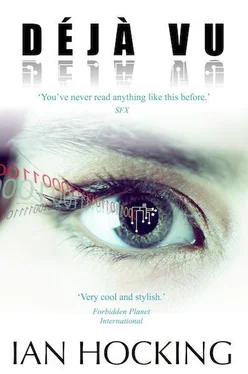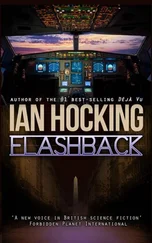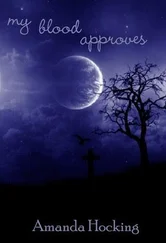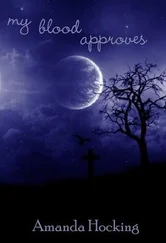Ian Hocking - Déjà Vu
Здесь есть возможность читать онлайн «Ian Hocking - Déjà Vu» весь текст электронной книги совершенно бесплатно (целиком полную версию без сокращений). В некоторых случаях можно слушать аудио, скачать через торрент в формате fb2 и присутствует краткое содержание. Год выпуска: 2011, Издательство: Writer as a Stranger, Жанр: Фантастика и фэнтези, Триллер, на английском языке. Описание произведения, (предисловие) а так же отзывы посетителей доступны на портале библиотеки ЛибКат.
- Название:Déjà Vu
- Автор:
- Издательство:Writer as a Stranger
- Жанр:
- Год:2011
- ISBN:нет данных
- Рейтинг книги:5 / 5. Голосов: 1
-
Избранное:Добавить в избранное
- Отзывы:
-
Ваша оценка:
- 100
- 1
- 2
- 3
- 4
- 5
Déjà Vu: краткое содержание, описание и аннотация
Предлагаем к чтению аннотацию, описание, краткое содержание или предисловие (зависит от того, что написал сам автор книги «Déjà Vu»). Если вы не нашли необходимую информацию о книге — напишите в комментариях, мы постараемся отыскать её.
Déjà Vu Literary awards: Red Adept Indie Awards winner for Science Fiction (2011)
Déjà Vu — читать онлайн бесплатно полную книгу (весь текст) целиком
Ниже представлен текст книги, разбитый по страницам. Система сохранения места последней прочитанной страницы, позволяет с удобством читать онлайн бесплатно книгу «Déjà Vu», без необходимости каждый раз заново искать на чём Вы остановились. Поставьте закладку, и сможете в любой момент перейти на страницу, на которой закончили чтение.
Интервал:
Закладка:
In 2005, I read a short, handsome review of Déjà Vu in The Guardian as my friends in the Rashleigh pub at Charlestown harbour slapped me on the back. The theme of the evening was that this review marked a milestone on the way to some great, literary city. Outwardly, I wholeheartedly agreed. But I also knew there was a good chance that I was holding the high-water mark of what would serve as a my literary career. It did; that felt OK at the time, and, in the end, it’s still OK.
Thanks, Aliya, the UKA Press, UK Authors, Ken, Neil, the Exeter Writers’ Group, Debra, Scott, and, of course, my agent John Jarrold. John has been tireless and faultless in his efforts to get my work under the right noses. A top man. And not to forget my partner, Britta: she put up with all manner of consequences while I spent time creating alternative realities. I never did get her that hair dryer.
Ian Hocking This Writing Life Canterbury, UK 2003-2010Déjà Vu All Over Again
An excerpt from a piece I wrote for Scott Pack’s blog, 18th March, 2011. Read the original
There was something familiar about the headline. I did a double-take.
It read:
I spat out my tea in a brown fountain.
Finally! I thought. I can afford a new laptop—one that isn’t covered in tea.
And then it hit me. This was another Hocking. Not exactly another Ian Hocking—like that nice American estate agent who emails occasionally—but Amanda Hocking, a young woman in Minnesota who, it turns out, is making a healthy living from selling her ebooks directly through Amazon and Barnes and Noble.
Desperately, I reached for a pen, set about tapping it against my teeth, and thought about what all this could mean.
I’ve retired from fiction writing, partly because only one of my four novels has been published—and published in a special sense at that. Upon its release in 2005, if you walked into your local Waterstone’s the staff member you spoke to could order a copy as long as he or she knew about the special red phone underneath the till. It showed up on Amazon, which was great, and was listed there as Spanish, which was not so. Impishly, Amazon would never reply to emails about the error, and still don’t. The kindly reviews were nice for me to read but had no impact on sales because the supply was almost non-existent. You’d have to be one of those people who firmly decide that you wanted the book and go to Amazon and ignore the warning that the book was in Spanish and buy it without ever reading a sample. Basically, you’d have to be either Mum or Dad or my girlfriend.
So I’m looking at this Amanda Hocking headline. Flecks of tea are moving down the screen of my laptop like the raw Matrix. The half-formed idea in my head—that I can make a book available and I don’t need to have a publisher—becomes about three-quarters formed. My audience is going to be limited to a few million Kindle customers, but that’s like saying my writing is limited by the alphabet; it’s enough, and nobody is going to tell me that only Random House can use the ‘Q’.
Amazon has the Kindle and they are selling them cheap. The Kindle store is very large. People who own a Kindle—like your humble correspondent—tend to be delighted with them, even though they’re a bit wonky. I can, in moments, download a Mark Twain, or buy the latest Jonathan Franzen. The Kindle store contains upwards of 700,000 books and the chances of finding an author you care about are good.
Then you have Apple. Their iBooks store has potential. The iPad isn’t wonky but the iBooks store is. The chances of finding a tell-all biography of Steve Jobs are slim. On the flip side, the chances of finding Winnie the Pooh are great.
You also have Barnes and Noble, and various other outlets and channels.
Right now, if you’re going to place your eggs in just one basket, Amazon looks like a good bet. They have relationships (strained, but there) with publishers and no other manufacturer can yet beat their Kindle for price. Steve Jobs said that 2011 will be the year of the iPad 2, but the jury is still eating bad hotel food over whether it’s possible to enjoy long-form fiction on the device. I’d say the iPad isn’t suited to the job.
The iBooks system is a tricky one. To get your book in there, you need a publisher. Lulu.com will do the job. These guys will add a small surcharge to your book and let you publish it for free—which is fine until you try to produce an ebook in iBooks’ ‘epub’ format. This format seems a mite less stable that Kindle’s ‘mobi’ and needs to pass through an automatic validation service to verify that it’s a well-formed epub file. Trouble is, I couldn’t get Apple Pages to export my novel in an epub format that would validate, and the ebook will never appear on iBooks until that happens. I’m still scratching my head about it. Right now, iBooks is the wild west.
The other advantage that Amazon has is a system called ‘Direct Kindle Publishing’. Cryptically, this is a system that allows you to publish—to the Kindle—but directly. It has some tolerably exciting aspects. First, it’s worldwide. Second, you can designate up to 70% of the cover price as a royalty. Compare this to the rate you’d receive through a traditional publisher. Alas, it’s not straightforward to publish a book for free using this service. (This had been my original plan following my retirement.) Third, it won’t matter that editors, agents, et al. say to you ‘It’s brilliant, moving, and wonderfully written but, gee, my lapdog didn’t do the shit dance when I acted out the first scene and if there’s one thing I’ve learned in this game it’s that SCHNOOKINS IS NEVER WRONG.’
Too bitter?
Anyway, it won’t matter. Your ebook will just appear.
The Kindle publishing platform accepts multiple formats. My advice is to take this advice. If you’re not scared to get at the HTML of the book itself, it will pay dividends because you won’t end up with a trailing carriage return, WingDing, or otherwise bizarre formatting thingy that you can’t get rid of.
One more tip: Use the Kindle emulator available from Amazon. This was recommended to me by m’writerly colleague Michael Stephen Fuchs—another technothriller author—and it’s invaluable. You’ll be able to produce versions of your book and see what the reading experience of it will be for a reader.
Now, the cover.
This is what separates the Cubs from the Scouts—at least in my opinion. Anyone who thinks the jacket isn’t important can probably point to the phenomenal success of ebooks with appalling covers, and they’d be half-right. Today, however, I’d say the cover is still important.
How much should your ebook, or any ebook cost? For inspiration about this, I look to two things: (i) the Apple IOS ‘app store’, where prices are quite low compared to the traditional rate for software (anything over a tenner needs to be special); and (ii) my own feeling that £6.99 is all well and good for a physical paperback but far too expensive for an ebook. I’ve settled for £1.71, which is Amazon’s conversion of the US price of $2.99.
I published the book a couple of weeks back and I’ve sold five copies. A small number? That’s five people who, three weeks ago, hadn’t read my book and were never going to while it pootled around the publishing houses of the world waiting for Schnookins to do the shit dance. Am I bitter? No, not really. The only publishers I know well are very nice people, but that doesn’t help Bob in Idaho get hold of my book when the mood takes him.
The thing is this: There is no print run. In six months’ time, whether five or fifty or five thousand units have been sold, it will still be available to millions of Kindle users in an instant. It will probably be there the year after that; and maybe for several years. By 2020, I might even have figured out how to get the bloody thing onto iBooks.
Читать дальшеИнтервал:
Закладка:
Похожие книги на «Déjà Vu»
Представляем Вашему вниманию похожие книги на «Déjà Vu» списком для выбора. Мы отобрали схожую по названию и смыслу литературу в надежде предоставить читателям больше вариантов отыскать новые, интересные, ещё непрочитанные произведения.
Обсуждение, отзывы о книге «Déjà Vu» и просто собственные мнения читателей. Оставьте ваши комментарии, напишите, что Вы думаете о произведении, его смысле или главных героях. Укажите что конкретно понравилось, а что нет, и почему Вы так считаете.












